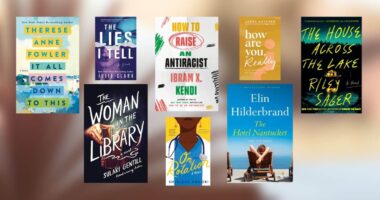In order to be a good writer, it’s crucial to have a command over your language. But this command over language does not come easily for everyone. Some people have to really work towards it. One straightforward way to do that is to broaden the horizons of your linguistic abilities by building up vocabulary. Here is a list of 10 ways to improve vocabulary and write better.
10 Ways To Improve Vocabulary And Write Better:
Read and annotate voraciously
The best and most indispensable way to improve vocabulary is reading. And by reading, I don’t just mean a book a month or two Books a year. I mean, you need to read voraciously and rapaciously, as you’ve never read before. And you cannot skim through pages or understand words by context. Every time you discover a word you don’t know, highlight it, look it up, use it in a sentence and note it down somewhere.
Sign up for a word of the day on a dictionary app
Many dictionary applications on phones have a word of the day feature, where the dictionary auto selects interesting words for you to use. They deliver this word with its meaning and pronunciation every day into your mailbox. From here, you can look into the meaning and possibly words similar to it or opposite to it as well. Plus, the element of uncertainty and novelty will certainly make you feel excited.

Look up five new words starting with an alphabet every day
The easiest way to consciously build up vocabulary is to look up the dictionary. But the thing is, reading the dictionary front to back will mean you will not retain a lot of what you read. But doing it slowly, in increments, like five words a day will definitely bear results. Understanding the meaning, using it in a sentence, looking for synonyms and antonyms or any phrases and idioms related to it can really help.
Listen to podcasts and video essays in your chosen language
Books are by no means the only source of rich language. Great language can be consumed anywhere – from pop culture to more elusive works of art. From the new age podcast to old songs which make use of the choicest words, vocabulary enriching material is available everywhere. You can also see theatre plays being enacted or give classical music a try if you want to learn obscure new words as well.
Try to translate works of art into your chosen language
Translation is the best possible way to both understand the meaning of a work of literature and imbibe its language. Initially, you may find it difficult and may have to refer to dictionaries and thesauruses over and over again. But once you begin to get a hang of it, you will discover the richness of a language anew. Also, you will learn to look at it from a bilingual perspective, which will give you more depth of insight into the language.

Play word games like Scrabble and crosswords
Who said improving your vocabulary has to be boring or tedious? Simply playing word games that appear in your newspaper can help tremendously. The daily crossword, or even the cryptic crossword for those advanced enough, is a stimulating brain activity which also gives entertainment and builds vocabulary. Apart from this, games like Scrabble and Tabboo, which make use of language, can help as well.
Converse with people proficient in the language
One of the best ways to learn anything new is to converse about it with someone experienced. This is because this stimulates the mirror and other neurons in the brain to accumulate that information. So talking to people who are linguistic experts, avid readers or writers, or just very good at communicating in a particular language can help build up vocabulary. This will inadvertently make you pick up their words and phrases.
Journal regularly
Writing regularly is just as important a part of increasing vocabulary as reading. And this is not stressed often enough. Journaling is one form of writing which incorporates self-care and relaxation with creative writing and thinking. Just observing the kind of language you use can make a difference. You could try consciously using better words, or you could just look for new words you’ve used later. Either way, you’ll learn something about yourself.

Look up etymologies of words
The biggest problem with building vocabulary is not coming across new words but memorizing them and repeating them in future conversations. And the most sure-shot way to solve this problem is to look up the etymology of a new word as soon as you encounter it. This will make you aware of how the word originated and help you link into other words you know while building up your knowledge!
Learn to appreciate language
Ultimately, the best way to build up vocabulary is to admire and appreciate words. The sound of words, how they roll off on your tongue, the weight of the meaning they carry, and the sense they accord to a sentence they’re placed in. Every word is a miracle, and just being aware of this will make you more sensitive to your language. This will also make you a good receiver of linguistic knowledge, and as a result, improve your vocabulary.
Also Read: Best Writers Born In The Month of June – Top 12




